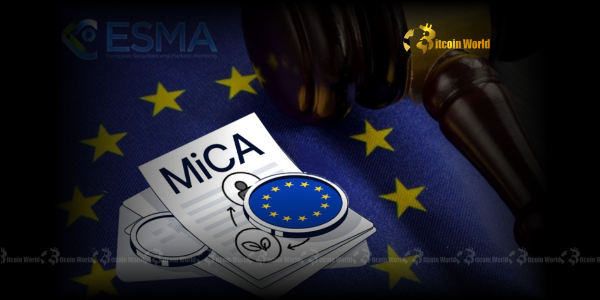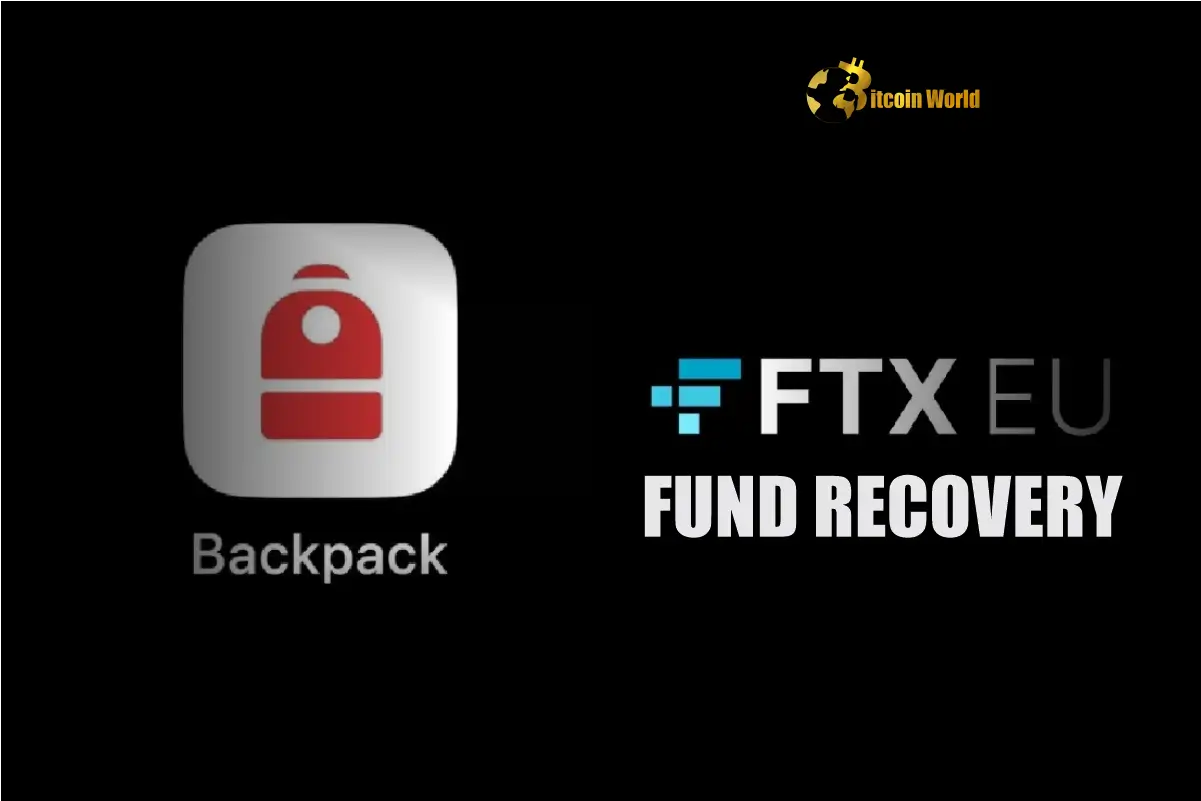
The world of cryptocurrency is dynamic, constantly evolving not just in terms of technology and market prices, but also in its regulatory landscape. As the industry matures, so does the scrutiny from global financial watchdogs. A recent development has sent ripples through the European crypto space, highlighting the critical importance of compliance and thoroughness in licensing processes. The spotlight is now firmly on Malta, as the European Securities and Markets Authority (ESMA) initiates a comprehensive review of its adherence to the landmark Markets in Crypto Assets (MiCA) regulations.
What Sparked the Urgent ESMA MiCA Scrutiny?
The core of the matter revolves around the authorization of a specific crypto asset service provider (CASP) in Malta. ESMA, the European Union’s financial markets regulator, has expressed significant concerns regarding a ‘fast-tracked’ authorization process. According to reports from CoinDesk, this authorization was allegedly granted despite a notable lack of thoroughness and the presence of unresolved issues. This raises an urgent question about the integrity of the regulatory procedures in place. The Markets in Crypto Assets (MiCA) regulation is designed to create a harmonized legal framework for crypto assets across the EU, aiming to protect investors, ensure market integrity, and foster innovation responsibly. ESMA’s intervention underscores its commitment to upholding these standards, ensuring that national authorities are diligently applying the new rules. This ESMA MiCA scrutiny is a clear signal that laxity in compliance will not be tolerated.
Malta Crypto Regulations Under the Microscope: A Reputational Challenge?
Malta has historically positioned itself as a ‘Blockchain Island,’ aiming to be a pioneer in crypto regulation. Its early adoption of frameworks for virtual financial assets (VFAs) attracted numerous crypto businesses. However, this recent development places Malta’s regulatory prowess and the effectiveness of its national financial watchdog, the Malta Financial Services Authority (MFSA), directly under the microscope. ESMA’s concerns about the ‘lack of thoroughness’ in the authorization process imply that the MFSA may have issued a license without ensuring necessary remediation or fully addressing all outstanding issues. This could significantly impact the perception of Malta crypto regulations on the international stage, potentially eroding trust among prospective businesses and investors who seek robust and reliable regulatory environments.
Key Concerns Regarding Malta’s Regulatory Process:
- Fast-tracked Authorization: Allegations of licenses being issued too quickly without adequate due diligence.
- Unresolved Issues: Indications that pre-existing problems or compliance gaps were not fully addressed before authorization.
- Lack of Thoroughness: A broader concern about the depth and rigor of the MFSA’s review process for CASP applications.
- Reputational Risk: The potential for Malta’s standing as a reputable crypto hub to be diminished.
The Enigma of OKX Authorization: A Case Study in Due Diligence?
While not officially confirmed by ESMA or the MFSA, OKX Exchange, a major global crypto platform, is widely suspected to be the entity in question. OKX received ‘pre-authorization’ in Malta earlier this year, making it a plausible candidate for the CASP under review. The specifics of OKX authorization in Malta, particularly the conditions of its pre-authorization, are now subject to intense speculation. This situation highlights the complexities of licensing large, international crypto exchanges. Regulators must balance the desire to attract innovation with the imperative to protect consumers and maintain financial stability. If a major player like OKX is involved in a case where due diligence was reportedly lacking, it sets a concerning precedent for the entire industry and underscores the need for transparent and rigorous licensing protocols.
Navigating the Future: Implications for Crypto Asset Service Providers (CASPs)
This incident carries significant implications for all Crypto Asset Service Providers (CASPs) operating or planning to operate within the European Union. MiCA is designed to standardize regulatory requirements across all 27 EU member states, ensuring a level playing field and preventing regulatory arbitrage. ESMA’s proactive stance in scrutinizing Malta’s compliance suggests that national regulators will be held to a high standard. CASPs, whether exchanges, custodians, or issuers of crypto assets, must understand that compliance is not merely a formality but a continuous commitment. This event could lead to:
- Stricter Scrutiny: Other EU member states might adopt even more cautious and thorough approaches to MiCA implementation and CASP licensing.
- Enhanced Due Diligence: Regulators may demand more extensive documentation, more robust internal controls, and clearer remediation plans for any identified deficiencies.
- Increased Compliance Costs: CASPs will likely need to invest more in legal, compliance, and technological infrastructure to meet evolving regulatory expectations.
- Precedent Setting: The outcome of ESMA’s review of Malta could establish critical benchmarks for how MiCA is interpreted and enforced across the bloc.
The MFSA Investigation: Upholding Regulatory Integrity
For the Malta Financial Services Authority (MFSA), this investigation represents a critical moment. As the primary financial regulator in Malta, its credibility and effectiveness are now being evaluated by a higher European authority. The outcome of the MFSA investigation will determine not only the immediate actions required but also the long-term trust placed in Malta’s regulatory framework. The MFSA will likely need to demonstrate a clear action plan for addressing ESMA’s concerns, which could include reviewing past authorizations, implementing stricter internal procedures, and enhancing transparency. This situation highlights the delicate balance national regulators must strike between fostering innovation in emerging sectors like crypto and ensuring robust consumer protection and market integrity.
Actionable Insights for the Crypto Industry:
In light of these developments, crypto businesses and aspiring CASPs should consider the following:
- Proactive Engagement: Engage early and often with regulatory bodies to understand their expectations and address potential issues before they escalate.
- Robust Compliance Frameworks: Invest significantly in internal compliance teams, technologies, and processes that can adapt to evolving regulatory landscapes.
- Deep Understanding of MiCA: Ensure your legal and compliance teams have an exhaustive understanding of MiCA’s requirements and how they are being interpreted by national authorities.
- Transparency and Remediation: Be transparent about any past or current compliance issues and demonstrate clear, actionable plans for their remediation.
- Jurisdictional Due Diligence: Carefully assess the regulatory reputation and track record of any jurisdiction before committing to an authorization process.
Conclusion: The Dawn of a New Regulatory Era
The ESMA investigation into Malta’s MiCA compliance, particularly concerning the suspected OKX authorization, marks a significant moment in European crypto regulation. It unequivocally signals that the era of ‘regulation light’ or ‘fast-track’ approvals in the crypto space is rapidly drawing to a close. As MiCA comes into full effect, regulatory thoroughness and strict adherence to established protocols will become non-negotiable. This incident serves as a powerful reminder that while innovation is encouraged, it must always be balanced with robust oversight and unwavering commitment to investor protection and market integrity. The future of crypto in Europe will be defined by compliance, transparency, and a collaborative effort between innovative businesses and vigilant regulators.
To learn more about the latest crypto market trends, explore our article on key developments shaping Bitcoin price action.





